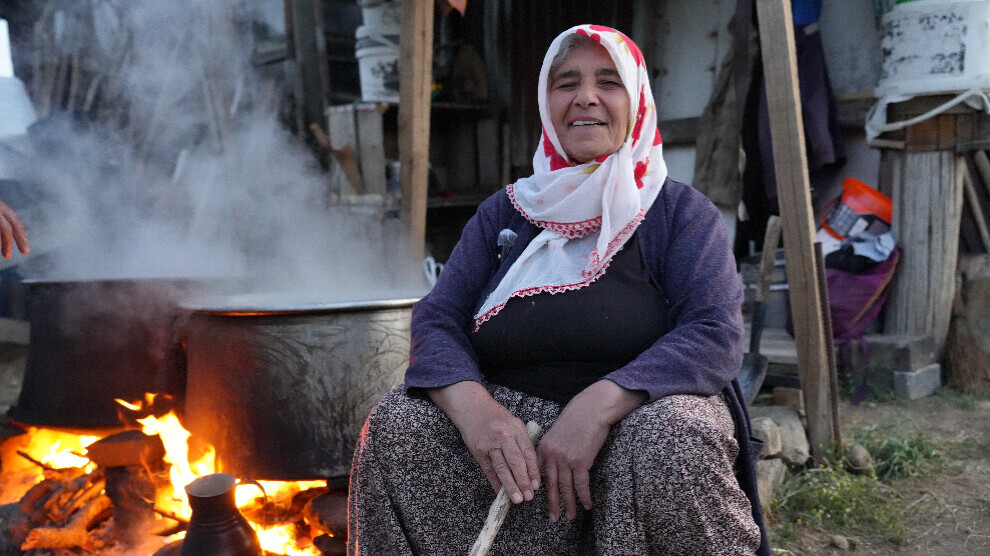Mulberry molasses season begins in Bingöl
Women in Bingöl are once again preparing mulberry molasses, turning the summer harvest into a source of livelihood.
Women in Bingöl are once again preparing mulberry molasses, turning the summer harvest into a source of livelihood.

Mulberry molasses remains a symbol of tradition and the ancient connection between women and nature in the rural areas of Bingöl (Çewlîg), where it is made each summer through collective effort.
The process begins with the arrival of the hot season, demanding yet fruitful. Women rise early in the morning, shake the mulberries from the trees, boil them in large pots, dry the extract in trays, and finally jar the molasses for winter use.
Zübeyde Yaşa, who has produced molasses for years to meet her family’s needs and shared: “Nature is sacred, everything within it is healing. But the climate has changed, trees have diminished; mulberries aren’t what they used to be.”
This demanding yet meaningful labor is more than just food production, for her. Zübeyde said, “We wake up at five in the morning. We spread out a sheet and shake down the mulberries. We strain them like grapes, put them into the pot and boil them. Then we pour them into trays and leave them outside for four days. Finally, we jar the molasses. It’s good for the stomach, the lungs, and many illnesses.”
We do this together as a family
Zübeyde Yaşa emphasized that the production of molasses is not carried out by women alone, but through the collective efforts of the entire family. She also pointed to the power of social solidarity: “Some people make it to sell, but we only produce it for our own use. Women and men work together. It takes a lot of labor, but it’s worth it. In the villages, especially women make and sell this molasses to earn a living. Both nature and these trees are our shared source of sustenance. We buy very little from outside. We usually make everything ourselves. We consume what we produce with our own hands.”
Nature gives, but if we don’t protect it, it will disappear
Zübeyde Yaşa highlighted the health benefits of everything gathered from nature, and at the same time drew attention to the recent climate changes and the ongoing destruction of the environment: “Once the mulberry season ends, we go out to collect thyme and then climb the mountains to gather sumac. These mountains provide us with everything, and we must protect them. Mulberries aren’t growing the way they used to. We used to boil many more pots in the past; now we’re down to just two or three. There’s less rain, and fewer trees. Still, we try to keep this tradition alive.”